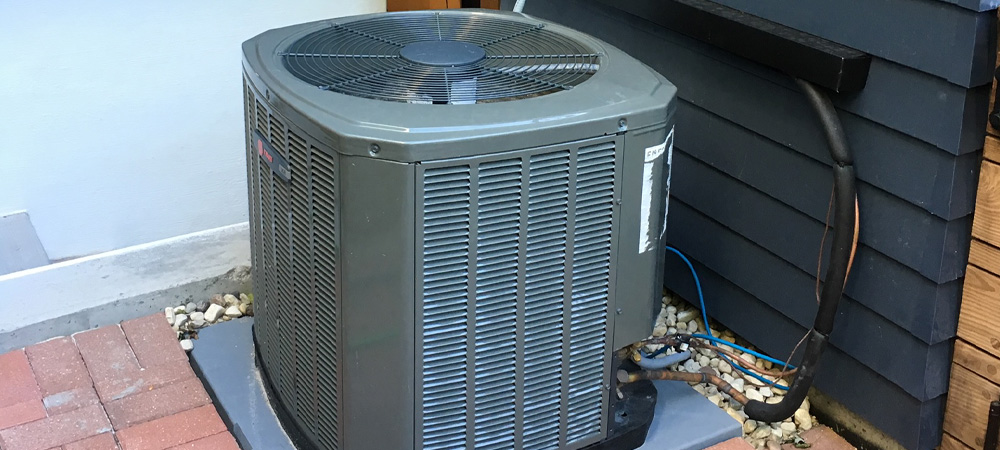The 7-Second Trick For Air Conditioning Repair Near Me
The 7-Second Trick For Air Conditioning Repair Near Me
Blog Article
Air Conditioning Repair: Professional Cooling System Repair Ensures Your Home Remains Comfy During The Most Popular Days
Common A/c Problems
Have you ever felt that unexpected rush of warm air simply when you expected a cool breeze? It's frustrating, isn't it? Many house owners face this problem, frequently unaware of what prowls beneath the surface area of their a/c system. Let's unravel the secret behind a few of the most frequent concerns that require prompt cooling repair work.
Why Won't My Air Conditioner Cool Correctly?
When your air conditioner unit blows lukewarm air instead of a refreshing chill, it's a clear indication something's off. A clogged up filter or low refrigerant levels often play the bad guy here. Envision attempting to breathe through a headscarf on a hot day-- that's what a filthy filter does to your system. Ever wondered why your energy costs surge when the cooling drops? That's your air conditioner having a hard time more difficult to compensate for inadequacies.
Unusual Sounds and What They Mean
Clicking, buzzing, or rattling sounds aren't simply sounds-- they're weeps for assistance. A loose belt or a failing motor may be the offenders. One house owner recounted how a relentless grinding sound ended up being a damaged compressor, saving them from a complete breakdown by acting rapidly.
Common Issues at a Look
| Symptom | Likely Cause | Quick Fix |
|---|---|---|
| Warm Air | Low refrigerant or filthy filter | Replace filter, check refrigerant levels |
| Water Leaks | Obstructed drain line or frozen coils | Clear drain line, thaw coils |
| Unusual Sounds | Loose parts or motor problems | Tighten parts, examine motor |
Is Your AC Cycling On and Off?
Short biking is more than an annoyance; it can significantly reduce your system's life-span. This could signal an extra-large unit or a thermostat problem. Have you observed your unit switching on and off like a flickering light? Do not disregard it. It's a subtle hint prompting you to contact the professionals before it develops into a pricey disaster.
- Unclean filters and coils trigger airflow issues.
- Thermostat breakdowns lead to irregular temperature levels.
- Electrical issues can stop your air conditioner from beginning.
Important Tools for Cooling Repair

Ever stood in front of a vast a/c system questioning which tool will open the mystery? The right instruments can make all the distinction in between a quick fix and a limitless afternoon of aggravation. For example, a digital manifold gauge set isn't just an expensive device; it's the investigator's magnifying glass in the world of refrigerant pressure. Its accuracy helps identify leakages or imbalances that a casual glimpse might miss out on.
When dealing with persistent or rusted parts, a quality tubing cutter is worth its weight in gold. It slices through copper pipes easily, avoiding damage that could cause costly leakages. Have you ever tried to flex copper tubing by hand only to wind up with kinks? Avoiding this requires specialized flexing tools developed to maintain the pipe's integrity.
Tools That Specialists Swear By
- Vacuum pump: Necessary for removing moisture and air from the system before charging refrigerant, making sure ideal efficiency.
- Drip detector: A must-have for capturing invisible refrigerant leaks that can trigger system inadequacy.
- Multimeter: Beyond determining voltage, it's important for diagnosing electrical faults within the AC's control system.
- Fin comb: A little yet mighty tool that corrects the alignment of bent condenser fins, improving airflow and performance.
Pro Tips for Utilizing Cooling Repair Tools
- Constantly validate your gauge readings versus producer specifications; even experienced techs double-check to prevent pricey misdiagnoses.
- When utilizing an air pump, make sure all valves and tubes are airtight; a minor leak can ruin the evacuation procedure.
- Clean your fin comb regularly. Dust and gunk can trigger it to snag, destructive delicate fins even more.
In the heat of summer season, a malfunctioning compressor check here or clogged filter can feel like a ticking time bomb. Armed with the right tools and knowledge, the repair ends up being less of an experience and more of a rewarding puzzle solved. Isn't it curious how a well-calibrated gauge or a simple leak detector can transform the entire outcome?
Step-by-Step Repair Work Process
Ever observed how your cooling unit starts to sputter, barely whispering the cool breeze it when delivered? The first move is a thorough medical diagnosis-- due to the fact that thinking just wastes time and resources. You might begin by examining the thermostat settings, but often the genuine perpetrator lurks much deeper.
1. Initial Inspection and Diagnostic

Begin by powering off the system to avoid shocks. Open the gain access to panels and aesthetically check for charred wires, clogged filters, or ice accumulation. A typical oversight is disregarding the condenser coils; dust and dirt here can choke efficiency. Use a multimeter to test electrical components and confirm if the compressor is receiving power.
2. Determining Refrigerant Issues
Does the system blow warm air? That's frequently a sign of low refrigerant levels or leakages. Specialists utilize a manifold gauge set to measure pressure precisely. Remember, overcharging or undercharging the system can cause permanent damage-- precise measurement is key.
3. Cleaning and Part Replacement
In some cases, a simple coil cleaning revives the system. Other times, it needs switching out capacitors, contactors, or fan motors. Changing these parts includes careful disassembly and reassembly; avoiding steps can result in further breakdowns.
4. System Testing and Calibration
When repair work are made, change the unit back on and observe its habits. Step the temperature level drop throughout the evaporator coil-- it should be approximately 15-20 ° F. If not, recalibrate the thermostat or check for airflow obstructions.
Expert Tips
Air Conditioning In [:location]Commercial Heating And Air Conditioning Repair Near Me [:location]
Best Air Conditioning Companies In [:location]
Best Air Conditioning Services [:location]
Air Conditioning Repair [:location]
- Prevent running the compressor without refrigerant-- this stress out the motor rapidly.
- Use a UV color to track down evasive leakages; they're frequently concealed in hard-to-reach areas.
- Never overlook the drain line-- blockages here can cause water damage and system failure.
- Wear insulated gloves when dealing with capacitors; they retain charge and can deliver a nasty shock.
Defending Against Sudden Breakdowns
Have you ever questioned why your a/c unit sputters to a stop right at the peak of summer season? The truth is, disregarding routine maintenance often invites unforeseen failures. Dust, debris, and damaged parts wage a quiet war inside your unit. Preventive maintenance is the ace in the hole-- capturing small problems before they spiral out of control.
Expert Tips for Keeping Your AC in Leading Shape
- Clean or change filters monthly: A blocked filter chokes air flow, requiring the system to work overtime and accelerating wear.
- Examine coil fins: Bent fins restrict air passage, similar to a traffic congestion in your cooling system. Use a fin comb to align them carefully.
- Check refrigerant levels: Low refrigerant can trigger the compressor to overheat, a precursor to costly repairs.
- Clear the condensate drain: Blockages here can result in water damage and mold development, a surprise culprit behind lingering smells.
- Analyze electrical connections: Loose circuitry or rusty terminals typically spark periodic failures, a subtle caution sign.
When Was the Last Time You Listened to Your air conditioner?
That faint rattling or uncommon hum might seem trivial, but it's a precursor to larger mechanical issues. One summer season, a client mentioned a soft buzzing noise. A quick inspection exposed a loose fan blade-- simple to repair, yet left ignored, it might have shattered the motor. Minutes like these underscore the worth of routine checks.
Quick List for Seasonal Prep
| Action | Frequency | Why It Matters |
|---|---|---|
| Filter cleaning/replacement | Every one month | Maintains airflow and performance |
| Coil and fin examination | Twice a year | Avoids airflow restrictions |
| Refrigerant level check | Every year | Ensures appropriate cooling capacity |
| Drain pipes line clearing | Every 6 months | Avoids water damage and mold |
| Electrical system assessment | Annually | Avoids sudden shutdowns |
Pro Pointer: Beyond the Basics
Did you know that gently oiling the fan motor bearings yearly can extend their life-span? It's a detail frequently overlooked however vital. Shading your outdoor unit from direct sunshine can lower the compressor's workload, discreetly enhancing longevity. Keep in mind, the health of your air conditioning unit is a reflection of the attention you offer it before it yells for assistance.
Report this page